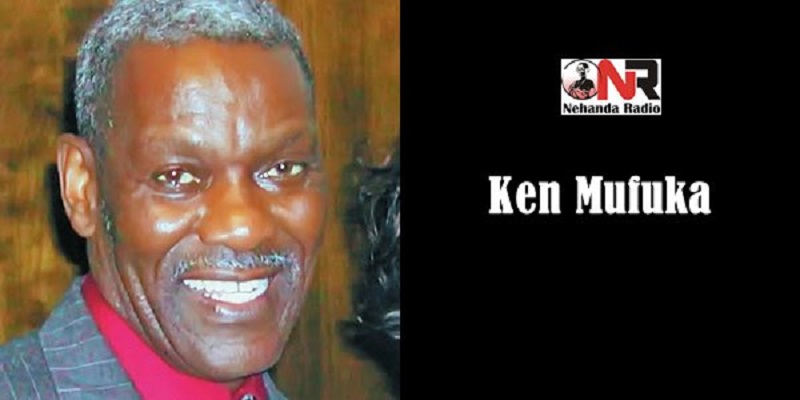By Ken Mufuka
Now faith is the substance of things hoped for and the evidence of things not seen. As a Christian, I am compelled by my faith to be hopeful. After all, the whole point of the resurrection is that there must be another future after death and a second chance.
 Yet the drama that is playing out in Zimbabwe seems to be following a previous path which began when a ZANU-PF sponsored constitutional referendum was rejected in 2000.
Yet the drama that is playing out in Zimbabwe seems to be following a previous path which began when a ZANU-PF sponsored constitutional referendum was rejected in 2000.
When Zimbabweans said that enough is enough of this political tom-foolery, General Vitalis Zvinavashe (formerly Sheba Gava) insisted that the Movement for Democratic Change’s presidential candidate, Morgan Tsvangirai, could not be president because the highest office in the land is a strait- jacket whose occupant is expected to observe the objectives of the liberation struggle.
Exactly 15 years later, another general has repeated the same mantra. I was but a minor doorkeeper in that struggle, and the two objectives I remember were fair redistribution of land and equal employment opportunity according to merit.
If present repetition of the Zvinavashe doctrine is correct, then its enforcement on a reluctant populace follows a familiar pattern, that of June 2008. “Three months after the first round of the elections (more) than 70 opposition supporters were killed and thousands maimed by government-backed militias” (Africa Confidential).
True to their faith, our brothers have maintained their hold on the land with Philistine brutality. Each Philistine warrior brought home the heads of the vanquished and built a pyramid of broken heads in the town square. There is no village today which has no memories of ZANU-PF militias’ brutality.
But the issue here is: When is enough, enough?
My contention is that the single largest contributor to our economic failure all round is the constant letting of blood by these Philistines. All the other failures, failure to put closure to land distribution, and a general failure to arrest endemic corruption, are partly derivatives of a violent Philistine culture.
When former intelligence officer, Karikoga Kaseke became head of the Zimbabwe Tourism Authority, he assumed that his energetic character by itself would make a difference in reviving the industry. Six years later, he has become wiser and less belligerent.
No tourist will return to a country where he/she is met at the airport by aggressive rifle-wielding soldiers. If the tourist’s luggage was not broken into by violent officers, his/her ordeal with police roadblocks planted every three miles was just beginning.
A lucrative industry that provided 25 percent of Zimbabwe’s economic activity is now a shadow of its former self.
Writing in 2007, Eddie Cross reminded Zimbabweans that “the economy will almost certainly shrink, for the ninth year in a row and the flood of economic refugees into other countries will get worse”.
Even then Cross said that government is “confused and divided — no strong central direction is apparent. Everybody is doing his own thing”.
ZANU-PF’s intra-party factionalism has been going on for a very long time. The Simba Makoni and bhora musango was part of that internecine war.
In graduate school, they say the definition of power is the ability of government to use violence to compel compliance. This government is more than willing to do that; 20 000 Matabele casualties, mass violence during elections, the disappearance of Itai Dzamara and the deaths of Talent Mabika and the shooting of Patrick Kombayi and others.
The glue that holds different factions is the ability to loot the country.
While I seek for forgiveness in appearing to disparage fighters who have sacrificed their lives, I speak from historical experience. The opposition parties cannot decide whether they will oppose a sitting government by peaceful means. That decision is made by government.
The Muslim Brotherhood in Egypt went underground because the Egyptian government periodically rounded up its members and shot them. Founder Sayyed Qutb, after years in prison, was asked whether he would renounce his opposition, or die. He chose martyrdom.
When the opposition parties join forces with religious organisations, casualties of government violence become martyrs and their funerals turn into religious affirmations of faith. Bishop Desmond Tutu taught me this wisdom.
The trouble with opposition parties has never been their inability to win elections. According to my studies over 10 years, the ruling party has not won a free and fair election since 2000. The reasons are obvious and have not been addressed. The Zimbabwe Electoral Commission and the Judiciary are in the same basket. That path to victory is closed.
If the opposition parties take part in an election, “they own the election”. By participating, a team promises to abide by the judgments of the referee. In this case, the judges are the electoral commission in the first place and the judiciary secondarily.
The Philistine rulers did not leave any great monuments to history because the nature of their lifestyles lay in periodic raids into neighbouring countries during harvest time. Their graves, however, show vials of perfume and broken shads (pottery) stolen from their neighbours.
Our energies are consumed by a predatory government that sets up roadblocks every three miles whose only purpose is to fleece the population. The idea that there is room for negotiation is a misunderstanding of the nature of Philistine rule. Financial Gazette
You can reach Ken Mufuka on [email protected]






